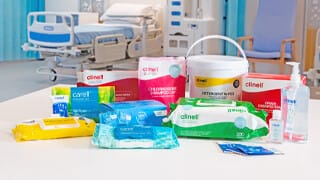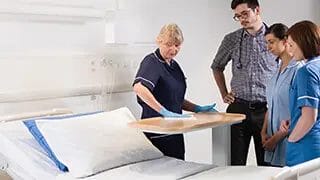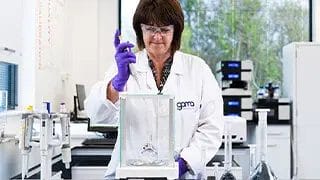Posted
22nd August 2024
Research
Cleaning shared medical equipment with a disinfectant wipe at least once a day saves lives by reducing infections in hospitals, according to groundbreaking new research.
Infection control has always been a critical focus in healthcare, but new world-first research highlights just how impactful even the simplest of measures can be. The CLEEN study, a landmark randomised controlled trial led by Professor Brett Mitchell from Avondale University in Australia, has shown that cleaning shared medical equipment at least once a day has a profound impact on patient outcomes.
The study, conducted in a hospital on the Central Coast, involved introducing an enhanced cleaning protocol using Clinell Universal and Sporicidal (PAA) wipes. This intervention included not just additional cleaning, in conjunction with routine cleaning, but also comprehensive education on effective techniques, as well as meticulous audits and feedback on cleanliness standards through the Evaluclean™ auditing system. Importantly, this wasn’t left to already overstretched healthcare workers. Instead, dedicated cleaners were brought in, who committed an extra three hours each day to disinfecting shared equipment, using Clinell Universal on items such as infusion pumps, blood pressure monitor, drip stands, and walking aids and Sporicidal (PAA) wipes on commodes and during outbreaks.
These products were specifically chosen for their effectiveness in reducing microbial loads on surfaces. To assess the effectiveness of these efforts, researchers employed the Evaluclean method: placing fluorescent marker gel dots on the surface of the equipment. These dots, invisible to the naked eye once dried, can only be detected under special light and resist removal by anything less than a thorough clean. Before the intervention, thorough cleaning was sporadic, with the hospital removing only about 25% of the fluorescent dots placed on equipment. However, following the implementation of the enhanced cleaning protocols—where cleaners spent an additional three hours daily on this task—this figure jumped to 65%. Most importantly, the study recorded a 34.5% reduction in all healthcare-associated infections (HCAIs). This reduction was statistically significant, with the prevalence of HCAIs dropping from 14.9% in the control phase to 9.8% during the intervention phase. Moreover, the thoroughness of cleaning improved substantially, with the percentage of cleaned equipment rising from 18.2% to 56.6% during the intervention. The intervention was also effective in reducing specific infections, with bloodstream infections, urinary tract infections, pneumonias, and surgical site infections decreasing from 6.3% to 4.0%.
These findings are particularly significant given the broader context: previous research by Professor Mitchell and his colleagues estimated that 160,000 HAIs occur in Australian hospitals each year. The impact of these infections is not just financial but also deeply personal, with lives lost due to complications arising from these infections.
Randomised controlled trials in this area are rare, this is largely due to the complexities involved in controlling the numerous variables that can affect study outcomes, as well as the large number of participants needed to produce reliable data. Overcoming these challenges also requires significant investment.
Gould et al. have praised the CLEEN study as a significant success, highlighting its robust design and practical implementation. They noted that the trial was well-executed and emphasised the importance of its findings for infection prevention and control (IPC). However, they also pointed out some limitations, such as the study being conducted in a single hospital, which may limit the generalisability of the results. Despite these constraints, the study is seen as a crucial step forward in demonstrating that rigorous IPC research is both achievable and impactful
The implications of the CLEEN study are clear: hospitals should be investing more—not less—in cleaning. The CLEEN study demonstrates that with the right tools, training, and commitment, hospitals can make a significant impact on patient safety. This study serves as a powerful reminder that improvements in cleaning protocols lead to substantial health benefits.
You can learn more about the CLEEN study here.
SHARE THIS ARTICLE
Tags
Latest News
GAMA Healthcare expands Rediroom fleet with additional order for Midlands Trust
GAMA Healthcare has secured an order for 8 more Redirooms,…
News from the front line: GAMA Healthcare partners with leading Midlands Trust to enhance air quality across two sites
GAMA Healthcare is pleased to announce a significant investment from…
Celebrating 20 Years of GAMA Healthcare: Our Story
This month, GAMA Healthcare celebrates 20 years of helping prevent…
Norovirus: Understanding its transmission and prevention in the UK
Introduction Norovirus is recognised as the leading cause of viral gastroenteritis…











